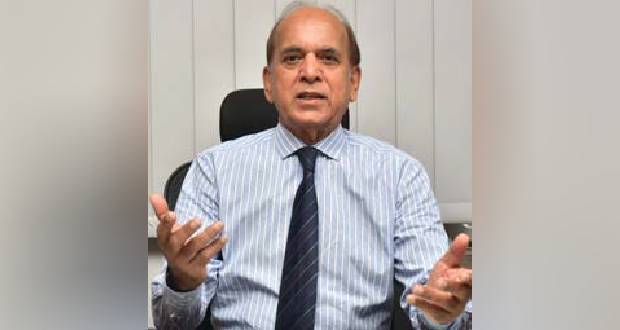Publicité
Mauritian democracy: a caesarean birth

Come a general election in Mauritius and passion starts running high. This is not a new phenomenon of our times. Already the 1885 Constitution aroused the first flush of inflamed passion when the elective system was introduced for the first time and people of this country were going to elect their representatives in the Council of Government in January 1886 by casting their votes. That was hailed as the advent of democracy in Mauritius in some quarters. Yet, the beginning of the democratic process was shrouded in controversies. Tension loomed large and gave rise to bitter clashes between opposing groups.
Indeed, the 1885 Constitution drove a scission in the influential white community. Under the pressure of a group led by William Newton and Henri Leclézio, the Governor, Sir John Pope Hennessy, wrote to the Secretary of state to advise him that there was a ?decided feeling for a people?s representation in the Council.? Lord Derby initially resisted the introduction of an elective system but caved in upon the insistence of Sir John. The elective element came to be enshrined for the first time in British Mauritius. But the new Constitution was far from bringing a ?general feeling of satisfaction? as the governor had made the colonial office to believe. Sir Célicourt Antelme, the leader of the wealthy oligarchs and the ?trusted adviser? of the Governor showed a stern opposition to the introduction of the elective system in the 1885 Constitution. Antelme?s opposition stemmed from the fact that in his views the elective element was dangerous as it would pave the way for the
?Indians swamping the true Mauritians? and in the ?not too distant future? taking the control of politics which rested in their hands. Invasion of the political life by the Indo-Mauritians was an opinion Pope Hennessy did not share. ?You may rest assured,? Sir John told Antelme, ?that neither the Indian community, nor the Chinese for whom I have also a great regard, will ever trouble your political life.? But the seasoned Antelme could foresee the new Constitution heralding the end of the white supremacy. Politics being a preoccupation with power, how the oligarchy could let it slip from its hands, it was argued. Almost 19% of children attending schools in the 1885s were children of the Indian labourers. That percentage was to rise in the years to come and was cause for concern for Antelme. Because of the restrictive criteria set in the 1885 Constitution, the Indian community had merely a handful of eligible electors for the first general election in 1886. That did not seem to worry Pope Hennessy. The key to enter the realm of politics and influence elections was the newly introduced elective system which needed to be satisfied either through ownership of assets or education. The Indians realized that their route to political control was through education. The ultra conservative Célicourt Antelme wanted to bump them out by fighting tooth and nail to maintain the old 1832 Constitution which made provisions for no election at all.
?Mauritius for the Mauritians?
But Antelme was going to stick to his guns. He seemed unfazed by the assurance given by the Governor. In the process, he lost his job of ?trusted adviser.? He was no longer commanding the ears of Sir John. William Newton who was said to be a ??tall talker?, lost no time in winning the favour of Pope Hennessy. So was the coterie of ?hangers-on of Le Reduit?? which included Virgile Naz, Georges Guibert and Henri Leclézio. The Governor listened to these people who encouraged him to think he was on a train to heaven.
With the first salvo fired for the general election to be held on the principle of the 1885 Constitution, there emerged two opposing factions. The group led by William Newton launched the ?Reformist party?. The anti-Pope Hennessy faction rallied round Gustave de Coriolis and Onesipho Beaugeard and formed the ?Democrat party.? The small British community reacted timidly probably encouraged by the Colonial Secretary, Dalton Clifford Lloyd who was not in good terms with the Governor. Their move was much more calculated on the fact that Sir John was a Roman Catholic and they were Protestants and so abstained from supporting the Governor. They launched the ?English party? which fizzled out shortly after its formation because of its ?weakness of character.? The disgruntled Antelme knowing his cause lost curiously jumped in the bandwagon of the ?Democrat party? from where he launched a drumbeat of criticism against the Governor and writing petitions one after another to the colonial office. The Reformers responded by describing Antelme an ?old ruffian? who had joined a ?clique both ambitious and dangerous.?
The Reform party got the support of the Governor who even went to the extent of floating a new slogan ? ?Mauritius for the Mauritians? which for the first time found expression in the Governor?s prize giving ceremony speech of the Royal College. Indeed, in his speech, Sir John stated that the days would not be far off when Mauritians would start occupying positions in the higher echelon of the government and rejoiced at the nomination of Eugene Leclézio, the first Mauritian Chief Justice whom he cited as a model to emulate. The Democrat party retaliated by accusing the Governor of indulging in local politics. Who was the leader of the Reform party, if not the Governor, lashed out the Democrats.
This accusation had some grounds. As when the Governor sent Nicolas Beyts, the Receiver-General, on a special mission: to convince John Alexander Ferguson, one of the candidates standing for election in Port Louis to withdraw so as to make the election of his friend William Newton easier opposite the popular duo, Gustave de Coriolis and Onesipho Beaugeard. In return, Ferguson, a Director of the Old (Oriental) Bank, was to be offered a nomination in the Council of Government. When Ferguson cast the deal aside, Pope Hennessy brandished the threat of associating his name with the secretly guarded frauds perpetrated at the Old Bank. Just like all rogue banks do, the Old Bank ceased its activities all of a sudden one fine morning sending a cold shiver down the spines of everybody. Customers were panic-stricken and felt like being looted by a bank where they had placed their money and trust. In a confidential dispatch later to the Bank?s office in London, Ferguson wrote that Newton ?owed a good deal of money to the Bank.?
Despite Pope Hennessy having worked hard to secure the election of Newton, the Governor received what he himself described a ?nasty shock? when the election result was out. His favourite Newton with whom he was so close as ?lips and teeth are? was defeated in Port Louis. A second shock was still to come; Sir Hercules Robinson instructed by Edward Stanhope, the Secretary of state, was on his way to Mauritius to suspend Sir John Pope Hennessy from office and conduct an enquiry into the Governor?s activities.
In the meantime, when the Council of Government met in April 1886 with the 10 elected members for the first time, Pope Hennessy showed signs of nervousness when presiding over the Council meetings. His elected friends were few. Those tough guys he had to face included Antelme (member for Plaines Wilhems) and de Coriolis (Port Louis). ? Il faut qu?on sache?, de Coriolis sounded a warning, ?que tant que je serai au Conseil, je tiendrai le fer chaud et ferai la chair fumer?? In one of his piques, Pope Hennessy burst out at de Coriolis? ?Shut your mouth and sit down,? the Governor yelled. To which, de Coriolis replied that the way of proceeding of his Excellency was an attempt to ?gag the elected members of the Council.?
A place to settle personal scores
The relationship between the Reformists and the Democrats was very much heated so long as Pope Hennessy presided over the meetings of the council. Debates on significant issues were relegated to the back seat. Instead, the Council was used as a place to settle personal scores. Just imagine the violent exchange of blows, for example, between Dr W. Edwards and de Coriolis; the challenge thrown up by one to fight a duel with the other in the yard of Government House or supporters of one group waiting near Government House armed with sticks to strike members of another group. Otherwise, the Governor kept troops on stand by at the Line Barracks to quell down disorders.
The general election in 1886 with its elective system sparked off as if a high voltage drama with all the ingredients stuffed in ? power struggles between two warring groups, punctuated by deep seated mistrust of the Indian community and racial prejudice, blackmailing, political intrigues, suspension of a Governor. Mauritius had then a population of 360,000 ?far too many for its size? according to the Mercantile Record and Commercial Gazette (1885). The number of voters eligible to vote with the 1885 Constitution was 4,059. The Indian community had ?less than 400 inscribed electors? in the island as stated by the Governor in the Council. But then, as Léoville L?Homme said in one of his speeches on the eve of the general election urging to vote for the Democrat candidates, de Coriolis and Beaugeard, the 1885 Constitution brought with it ?the first wind of freedom and marks the dawn of Mauritian democracy.?
Anand MOHEEPUTH
Publicité
Les plus récents






